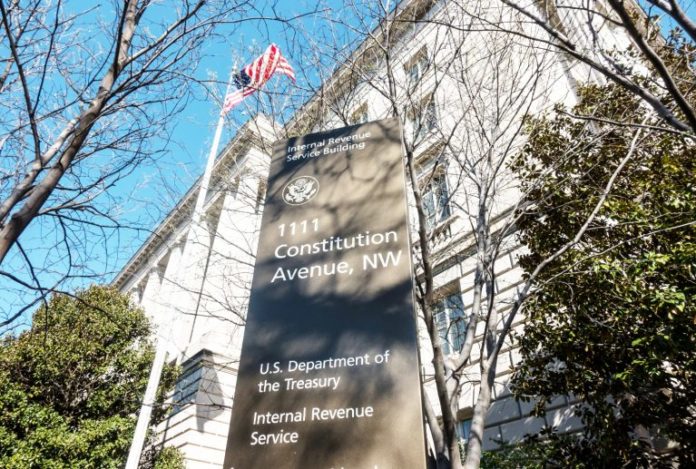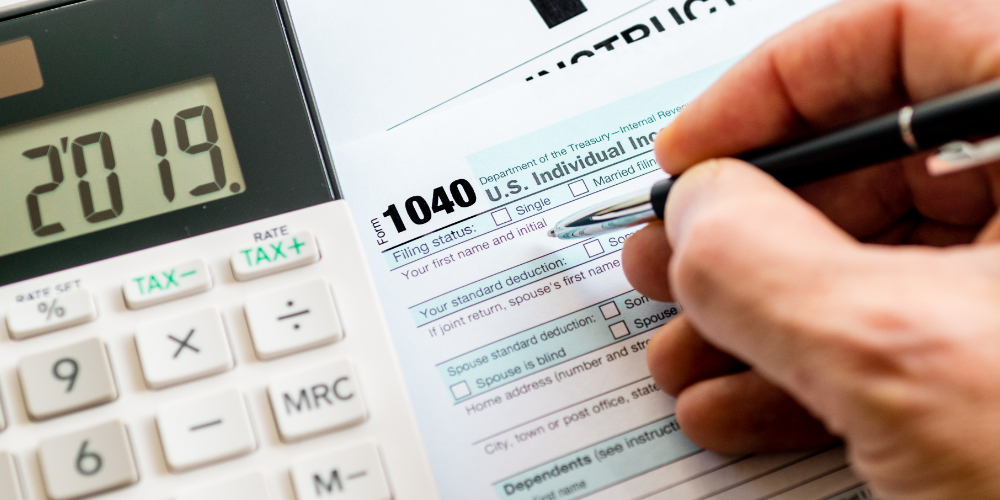
The U.S. Internal Revenue Service (IRS) has finalized and put in use a new tax form that requires crypto owners to declare whether they received, bought, sold, exchanged, or acquired any cryptocurrencies in 2019. Tax experts are frustrated at the vagueness of the tax agency, with some questioning whether the answers would increase the chances of being audited by the IRS.
Also read: IRS Dispels Crypto Tax Confusion
New Tax Form With Crypto Question
The IRS published a new tax form containing a question about cryptocurrency on Thursday. The Schedule 1 form is part of the 1040 tax form for U.S. taxpayers to declare “Additional Income and Adjustments to Income.” The IRS first unveiled the draft of this form in October, as news.Bitcoin.com previously reported. The form is now finalized and posted on the IRS website for use in filing 2019 tax returns. Form 1040 is used by over 152 million U.S. tax filers. The first question on the new Schedule 1 reads:
At any time during 2019, did you receive, sell, send, exchange, or otherwise acquire any financial interest in any virtual currency?

What Will the IRS Do?
The crypto question at the beginning of the new tax form has the crypto community guessing the IRS’ intention, what it will do with the information, and what exactly needs to be declared. A tax expert told CNBC that “The inquiry itself is a vague one.”
Sarah-Jane Morin, a partner at Morgan Lewis in San Francisco, told the publication, “As a taxpayer myself, I find this question very frustrating because it isn’t clear.” She pointed out that moving one’s own cryptocurrency from one wallet to another could be considered “sending.” Morin concluded that “The most conservative approach that a taxpayer can take is to consider any interaction you’ve had with virtual currency and whether there’s any way this can fall under this very broad list of what you could’ve engaged in during 2019.”

Jeffrey Levine, a CPA and director of financial planning at Blueprint Wealth Alliance in New York, was quoted by the news outlet as saying:
The biggest thing is that the IRS is asking this for a reason, and my question is how much have you increased your audit risk by checking ‘Yes’ in response?
The IRS has a history of being vague when it comes to taxing crypto transactions. The agency released new tax guidelines in October to supplement its previous guidance issued in 2014. However, while the new guidance answers some questions, it also raises several more, especially regarding how hard forks and airdrops are taxed. In November, two attorneys in the IRS Office of Associate Chief Counsel (Income Tax and Accounting) attempted to answer some questions regarding hard forks and like-kind exchanges.
IRS Increases Focus on Crypto
The IRS has been increasing its efforts to find and tax crypto owners. The agency’s Criminal Investigation Annual Report 2019 released last week outlines its efforts and progress in finding and convicting crypto tax evaders. The IRS wrote:
Cryptocurrencies are undermining the financial and tax system.
“Companies pay employees in cryptocurrency or receive crypto for goods/services,” the tax agency continued. “They do not pay taxes and entities shift income to offshore exchanges with no reporting requirements, utilizing exchanges with little to no AML practices.” The IRS added, “Understanding the advancements in this area and staying on top of the criminal methodologies is our bread and butter.”

While admitting that its resources are limited, the IRS believes that it has the tools and ability to find crypto tax evaders. Cyber criminals “now deal in cryptocurrency, again thinking this will make them anonymous, but our agents have once again proved that there is nowhere to hide. We will not stop in our pursuit,” the report reads. In July, the tax agency sent more than 10,000 letters to crypto users reminding them of their tax obligations.
The IRS’ report also highlights the achievements of its collaboration with international partners, the Joint Chiefs of Global Tax Enforcement or J5. The group comprises the IRS Criminal Investigation and its counterparts in the U.K., Australia, Canada, and the Netherlands. The J5 focuses on international tax evasion including the use of cryptocurrency to evade international tax obligations. The IRS further wrote:
In just 18-months, we are already seeing the benefits to this group both in the development of new tools and in the numbering of real cases. We expect our first operational results from this group in FY20.
What do you think of the IRS asking all tax filers about their crypto activities? What do you think it will do with the information obtained? Let us know in the comments section below.
Disclaimer: This article is for informational purposes only. It is not an offer or solicitation of an offer to buy or sell, or as a recommendation, endorsement, or sponsorship of any products, services, or companies. Bitcoin.com does not provide investment, tax, legal, or accounting advice. Neither the company nor the author is responsible, directly or indirectly, for any damage or loss caused or alleged to be caused by or in connection with the use of or reliance on any content, goods or services mentioned in this article.
Images courtesy of Shutterstock and the IRS.
Did you know you can buy and sell BCH privately using our noncustodial, peer-to-peer Local Bitcoin Cash trading platform? The local.Bitcoin.com marketplace has thousands of participants from all around the world trading BCH right now. And if you need a bitcoin wallet to securely store your coins, you can download one from us here.
The post IRS Now Requires Tax Filers to Disclose Crypto Activities appeared first on Bitcoin News.

Bitcoin.com is author of this content, TheBitcoinNews.com is is not responsible for the content of external sites.
Our Social Networks: Facebook Instagram Pinterest Reddit Telegram Twitter Youtube











